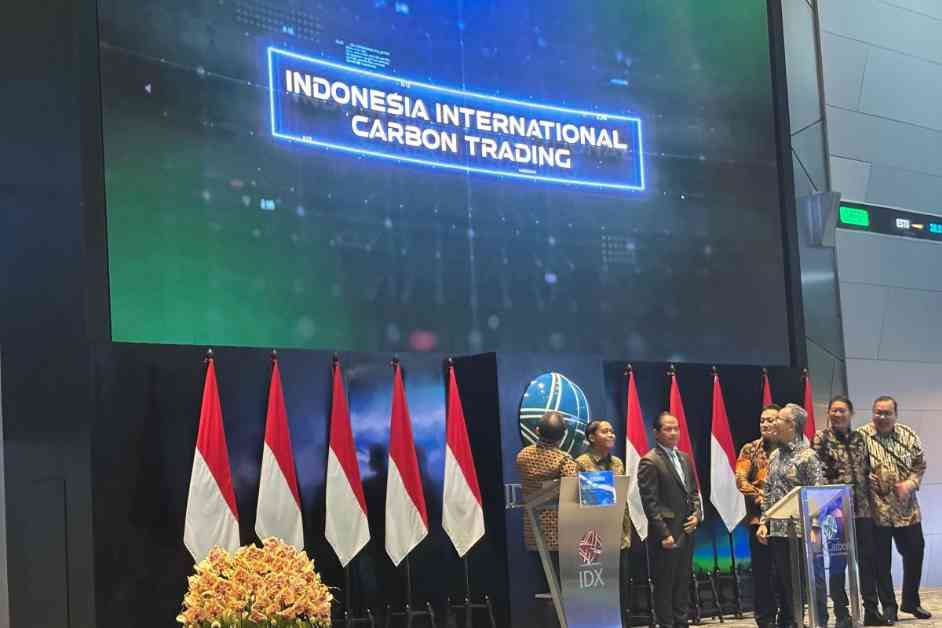Indonesia Spearheads Global Carbon Trading Initiative
In a groundbreaking move for environmental sustainability, Indonesia has officially launched its participation in the international carbon trading market. The unveiling took place at the Indonesian Stock Exchange (BEI) in Jakarta on Monday, marking a significant step towards achieving the country’s climate targets as outlined in the Nationally Determined Contribution (NDC) document.
Minister Emphasizes Commitment to Climate Goals
During the launch event, Environment Minister Hanif Faisol Nurofiq highlighted the importance of Indonesia’s foray into international carbon trading. He stressed that this initiative aligns with Presidential Regulation No. 98 of 2021, which focuses on implementing the economic value of carbon for NDC targets and controlling greenhouse gas emissions in national development.
Strategic Energy Projects to Drive Emission Reduction
The minister revealed that Indonesia’s international carbon trading efforts will revolve around several key strategic energy projects. These projects include the operation of the Gunung Wugul Mini-Hydro Power Plant in Central Java, expected to slash five thousand tons of carbon dioxide equivalent (CO2 eq).
Additionally, the trading will encompass the operation of the Priok Block 4 Gas and Steam Power Plant (PLTGU) and the construction of PLTGU Block 3 PJB Muara Karang in North Jakarta. These initiatives hold the potential to significantly reduce emissions by 500 thousand and 750 thousand tons of CO2 eq, respectively.
Furthermore, Indonesia aims to convert single-cycle power plants to combined cycles at the Grati Block 2 PLTGU in East Java and Block 2 power plant units in Muara Tawar, West Java. These conversions are projected to cut emissions by 495 thousand tons and 30 thousand tons of CO2 eq, respectively.
Government’s Multi-Faceted Approach to Climate Initiatives
In addition to international carbon trading, the Indonesian government has been actively raising funds for climate initiatives through performance-based grant agreements with various stakeholders. This comprehensive approach underscores Indonesia’s commitment to environmental sustainability and underscores its dedication to combatting climate change on a global scale.
Through these concerted efforts and strategic projects, Indonesia is poised to make a significant impact on the international carbon trading market, setting a precedent for other nations to follow suit in the fight against climate change.






















